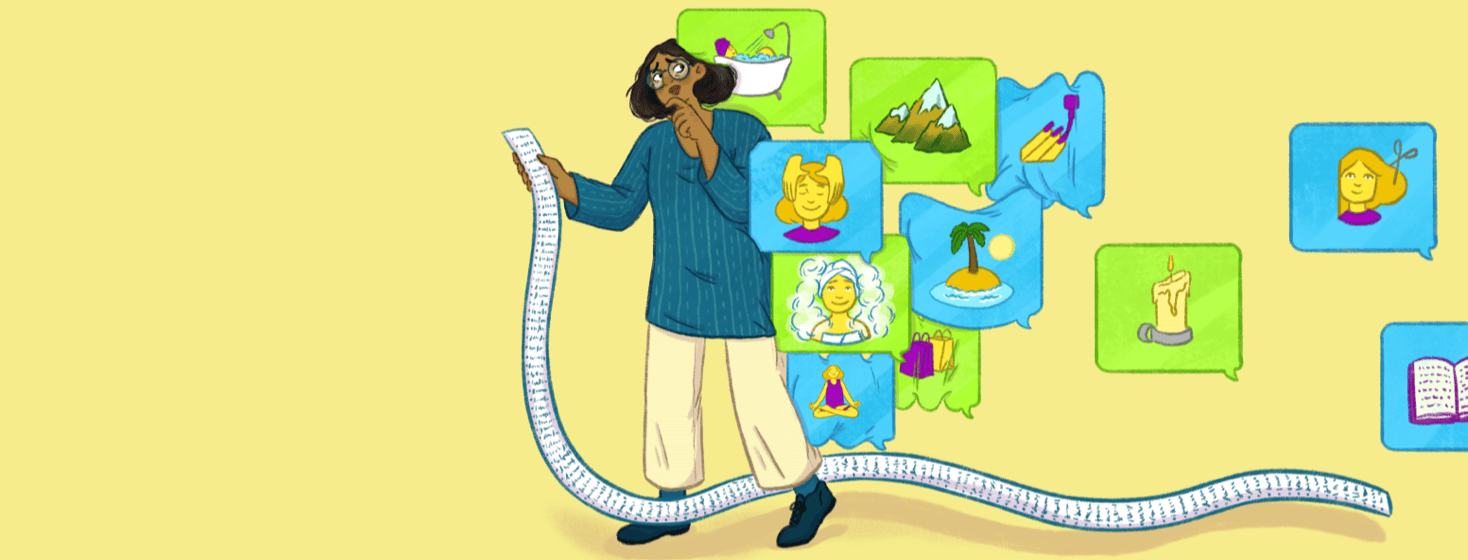Add It to the List: Self-Care
Every day, caregivers attempt to complete a long list of tasks: meals, laundry, hygiene, and more. All of this is usually just for their loved ones. Trying to fit in time for themselves can seem like a daunting task.
At some point on the Alzheimer's caregiver journey, even taking a shower for 10 minutes can seem too risky. What do you do when caring for yourself feels like just one more thing on your "to-do" list? You are not the only one who feels this way.
The wellness market is a business
Self-care and wellness are incredibly important. We all need to go to the doctor, see friends, and breathe for a moment. "Wellness" also happens to be very trendy.
According to the Global Wellness Institute, the global wellness economy was estimated to be about 4.4 trillion dollars in 2020 and could grow to about 7 trillion dollars by 2025. There has probably been plenty of self-care information coming your way, and that can feel overwhelming.1
Self-care can seem like a burden
You are not alone if you feel you are being bombarded with reminders to maintain a self-care routine. I remember receiving those same reminders from concerned family members and friends.
Some days, I wanted to pull my hair out, and rightfully so. Caregiving is strenuous, hard work. It can very quickly become a 24/7 job. Instead of a moment to take a break and relax, self-care seems like a burden. What is even the point?!
Other ways to help
Your loved ones are reaching out because they are concerned about you. Maybe they ask about your well-being because they do not know how else they can help. Instead of pushing "self-care," there are other ways to be of assistance.
There is no one-size-fits-all answer on how to help a caregiver – just options. For example, it is a nice gesture for someone to offer to come and stay with your loved one for a few hours to give you a break. Great! Go for it.
Another approach may be to have them stay with you while caregiving. This way, they can learn about your day-to-day activities and be there to lend a helping hand.
For those looking to help caregivers: Try to find a way to ease their daily tasks. Taking on mealtime duties or sending over dinner can provide stress relief. Home cleaning services, laundry, and lawn care are also time-saves for caregivers. It's the not-so-little things that may be the most significant help.
Keeping it in perspective
The world is constantly reminding caregivers to make time for themselves, but that isn't always realistic, especially in the later stages of Alzheimer's.
The idea of self-care is great until it becomes more of a burden than a blessing. Well-intentioned "caregiver wellness" suggestions might be nixed for acts of service to or with the caregiver. Maybe, if we can meet people where they are, everyone will feel seen and experience some relief.

Join the conversation